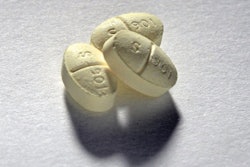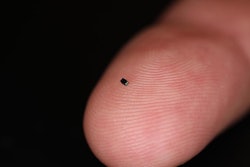Pulse oximeters are vital in the fight against COVID-19 as they help doctors monitor a patient’s oxygen levels. However, a recent CNN Health article says the FDA is warning that the devices may yield inaccurate results. Apparently there are multiple studies suggesting skin pigmentation can affect the accuracy of the devices.
Pulse Oximeters Have a Fatal Flaw for Some People
There are multiple studies suggesting the device crucial to the COVID-19 fight only works on certain skin colors.
Mar 1, 2021
Sustainable Healthcare Packaging Solutions That Work
Industry leaders share proven strategies for reducing packaging emissions by up to 70% while meeting safety and regulatory requirements.
Read More
Researched List: Blister Machines for Life Sciences
Need a blister machine for life sciences packaging? Our curated list features companies serving pharmaceutical, medical device, nutraceutical, and cosmetic industries. Download to access company names, locations, machine specifications, descriptions, and more.
Download Now
Downloads




















